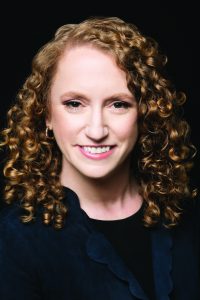The PEN Pod: On Educational Gag Orders and the January 6 Insurrection Subpoena

Photo by Beowulf Sheehan
Every Friday, we discuss tricky questions about free speech and expression with our CEO Suzanne Nossel, author of Dare to Speak: Defending Free Speech for All, in our weekly PEN Pod segment “Tough Questions.” This week, we spoke with Suzanne about why educational gag orders are such a profound threat to free expression, whether concerns about school curricula are sincere, and whether the recent subpoena of Trump staff could lead to a shared understanding of the January 6 insurrection at the White House. Check out the full episode below (our interview with Suzanne begins at the 43:58 mark).
On the Threat to Free Expression in Education
“What I think is so pernicious here is the type of infringement on free speech that the First Amendment really zeroes in on most intensively are viewpoint-based restrictions—bans or punishments based on a specific viewpoint, and that’s really the form that these legislative prohibitions take. It’s particular ideas, teachings, subjects that are put into the bull’s-eye of these laws and essentially take an ‘outside of bounds’ for not just teachers but even classroom discussion.
“It’s pinpointing specific theories, opinions, ideas, even historical events, and saying, ‘No no, you can’t go there.’ To me, that is at odds with the system that we have of education where, yes, there’s a curriculum, but like we do with all of our societal institutions, we prize openness to conversation, to debate, to a breadth of ideas. We want students to be able to ask any question that might come to their mind. We want teachers to use their own base of knowledge, their creativity, to expose their pupils to a breadth of perspectives, and this really cuts against that. It remains to be tested as a legal matter how exactly courts would treat this, but it seems quite clear on its face that it’s precisely the sort of viewpoint-based discrimination that the Constitution abhors.”
On the Validity of Parental Curriculum Concerns
“My view is that we should be encouraging young people to look at our history through a variety of lenses—through the lens of race, through the lens of socioeconomics, gender, traditional power mapping analysis. . . I think all of those lenses have their place. And if you’re exposed to thinkers who utilize each vantage point, you can kind of synthesize and come up with your own understanding of what’s going on.
“I think the concern here is that a single lens is being emphasized to the exclusion of other sorts of perspectives, and that in some instances that we’ve heard about, there are times when that lens has been used to perhaps paint with a broad brush. . . . There can be a heavy-handedness to it, that it even could elicit a backlash, where instead of making people more sensitive to racial inequity and injustice, they almost feel it’s rammed down their throat and they reject it.
“I think there is a kernel of genuine concern here, but I think that is now being whipped up into this frenzy, and I think most of the people who are really behind this are not motivated so much by that genuine concern as by what they see as a political opportunity to fire up a base. But I also think those who are opposed to these bans—to reject that kernel or refuse to entertain it, I also think is a mistake. Because I think it’s real, and we’re seeing it rear its head, and it’s inflecting our politics, and we need to come to grips with it, and we need to be able to talk to parents who are on the genuine side of this.”
On Reaching a Shared Understanding of the Insurrection
“‘Shared’ is really the operative word there. I don’t think in this climate that we are going to have any kind of unity in terms of interpretation of January 6, and what happened, and who is culpable. I nonetheless think this is an extremely important exercise for the historical record, and I hope that in future generations they’ll look back on this as a serious investigation, which I believe that it is—that it’s factual. There’s an effort to draw in a whole range of materials and perspectives and eyewitness testimony.
One of the things I’m most focused on and interested in [is] this question of what Trump knew—to what degree they knew that this violent attack was being planned. I wrote about Trump’s remarks that he gave on the mall the morning of January 6, and said that I didn’t think they rose to the level of incitement to imminent violence. But I think that calculus might be different if this investigation establishes that he was aware of what they exactly had had planned and that he knew that violence was imminent.”






